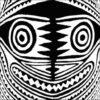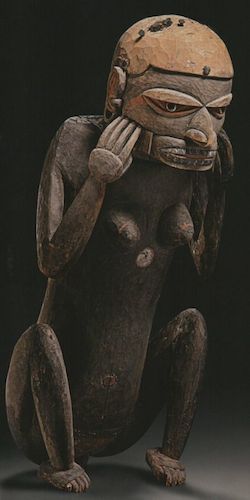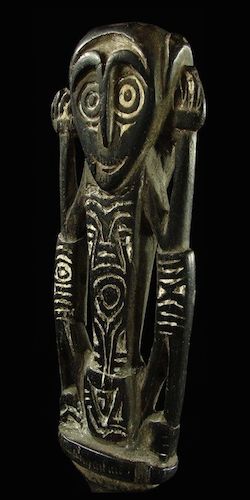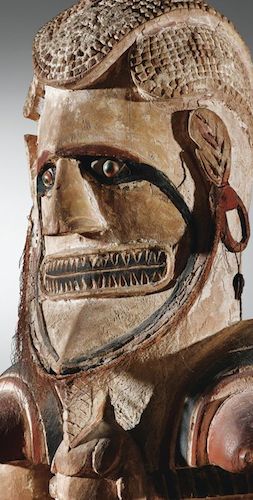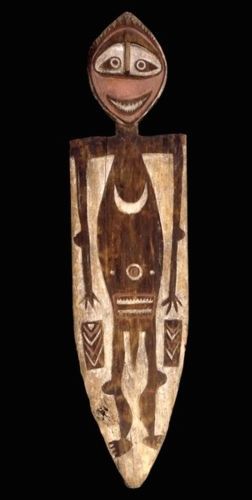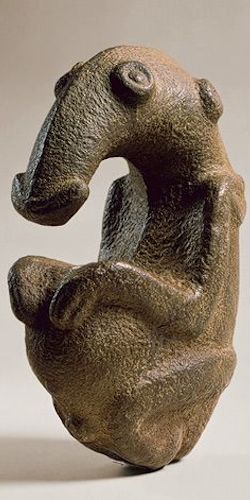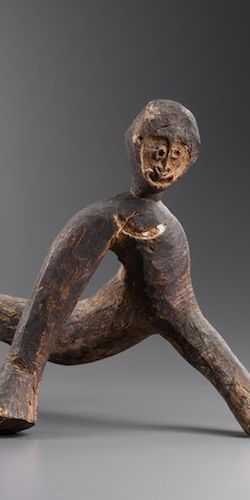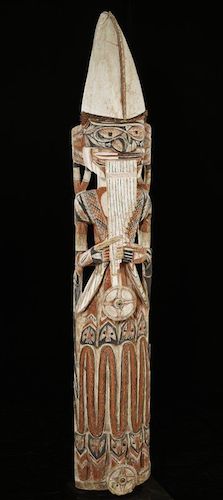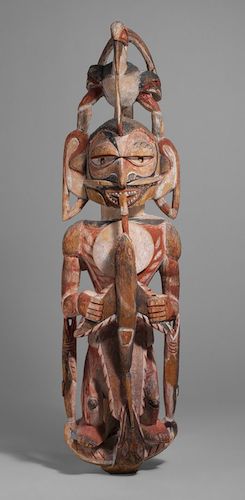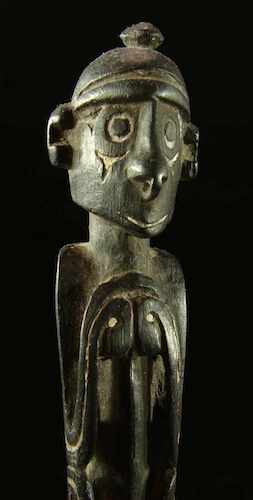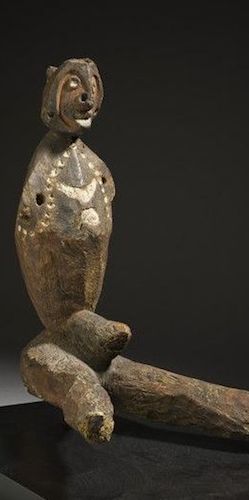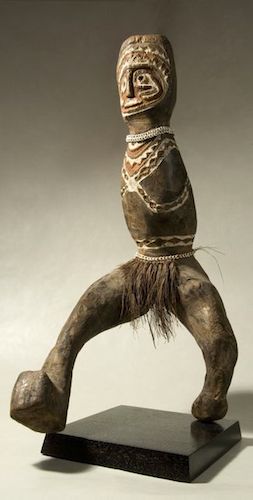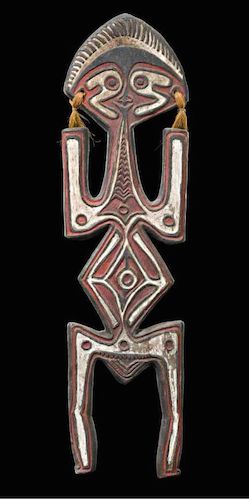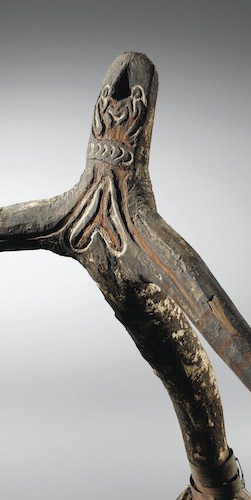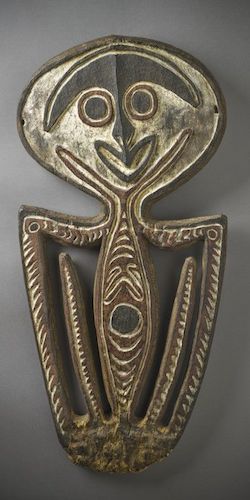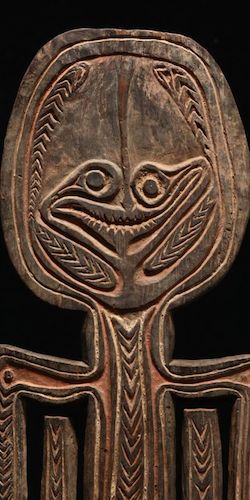Papua New Guinea Figure
Papua New Guinea Figure
This article helps to visually show the main types of Papua New Guinea Figure. It should help the reader identify which region their figure comes from.
The best known New Guinea Figures come from the Sepik River but there are numerous different types of sculpture throughout New Guinea. Sepik Sculpture has so many variations that most of these styles are covered in a separate article.
I Buy Old Papua New Guinea Figure and Oceanic Art if you have one to sell please contact me. If you just want to know what your oceanic art might be worth please send me an image. I would love to see it
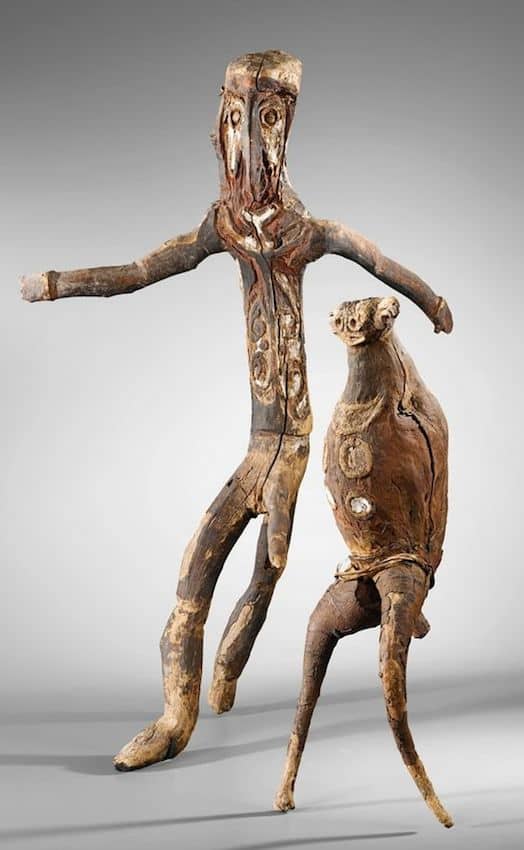

New Guinea figure General
Papua New Guinea Figure normally represented gods deities or ancestral heroes. They were sometimes made free standing but are also often found as part of a larger object like the top of a house pole.
New Guinea figures vary in size from very small charms hidden on your person to monumental sizes. Most figures have a cult/religious purpose and are full of energy and life.
In New Guinea, it is only men who are supposed to see these figures. Women and uninitiated male children are Taboo to go near structures containing them.
The following is a visual guide on types of Papua New Guinea Figure but due to the huge variety throughout the country, it is far from inclusive. It is probably better to think of this article as a brief introduction to this fascinating group of oceanic art forms. If you want more detailed information about a particular piece please feel free to contact me.
New Guinea Figures by Area
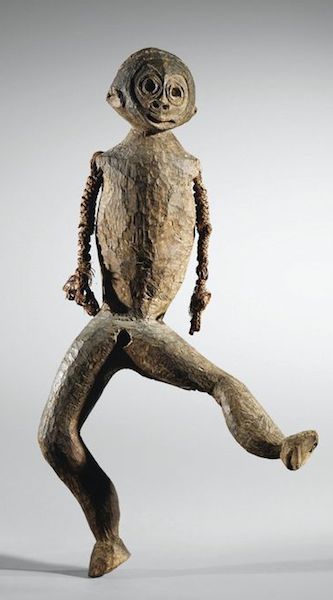
Papuan Gulf Figures
There are several different types of figures that come from the Papuan Gulf.
Imuni Figures are three dimensional and often carved from mangrove wood. Part of the charm is that the carver uses the natural woods shape when carving.
Flat figures from the Papuan Gulf are Bioma and older ones tend to have more fluid forms and often have a pierced nose.
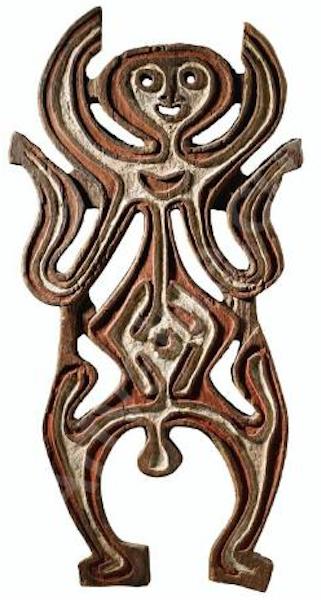
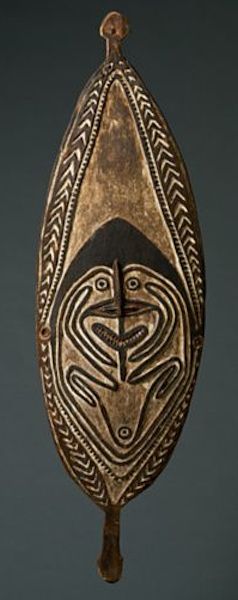
Hohoa boards are often mistaken for shields. Even though they are flat they are actual figures that represent ancestral heroes. Nearly all have concentric circles for eyes. old examples have raised noses and sometimes forehead.
Skull racks are very rare. They were to hang the skulls of dead enemies. They come in different styles but all have somewhere to hang skulls from.
Hohoa boards are often mistaken for shields. Even though they are flat they are actual figures that represent ancestral heroes. Nearly all have concentric circles for eyes. old examples have raised noses and sometimes forehead.
Skull racks are very rare. They were to hang the skulls of dead enemies. They come in different styles but all have somewhere to hang skulls from.
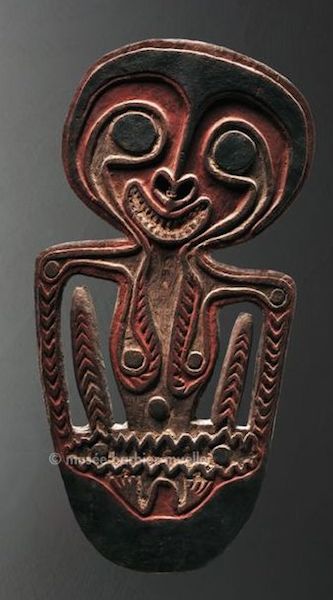
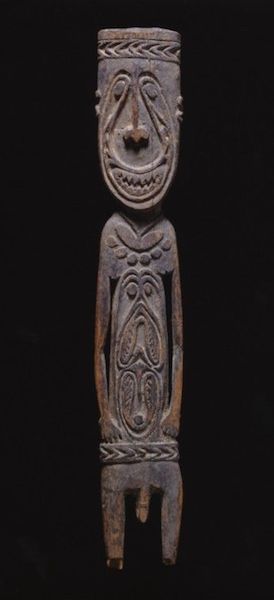
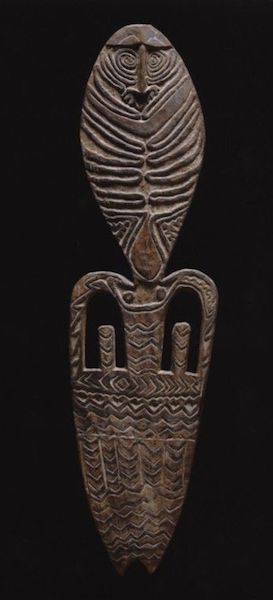
Turama River Figures
Figures from Turama River are rare but tend to be mildly triangular in cross-section. They normally have tear shapes around the eyes and designs on the stomachs.
Turama also has skull racks but they are very rare and used for hanging skulls of hunting trophies and not human skulls.
Gogodala Figures
Figures from Gogodala made from softwoods often have small red seeds around the eyes. They typically have a conical hair coiffure and are brightly painted.

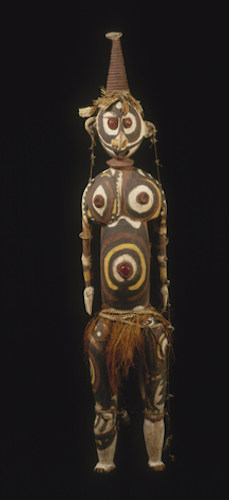
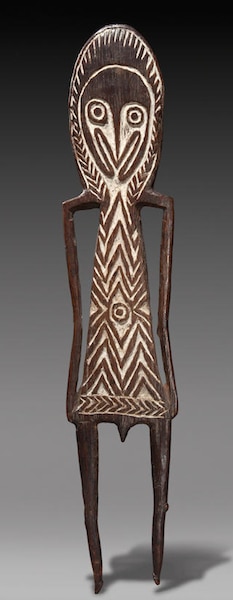

Fly River figures
Figures from the Fly River are extremely rare and most have early collection dates.
Large figures made for mourning ceremonies are some of the most powerful of all new guinea art.
Smaller personal charms tend to be flat and mostly come from Kiwai Island.

Massim Figures
Massim Figures are rarely free standing e and the majority are attached to the end of a lime stick or canoe part.
They are usually made from ebony or very dense hardwoods. The designs are very precisely carved and with a refined almost Polynesian finish.
Below
Four examples of Figures on the top of Lime Spatulas
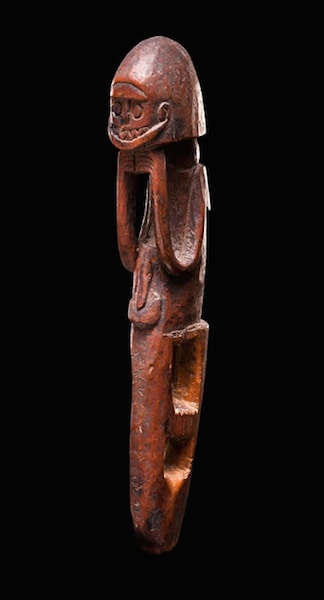
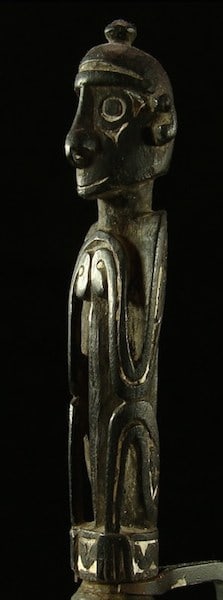
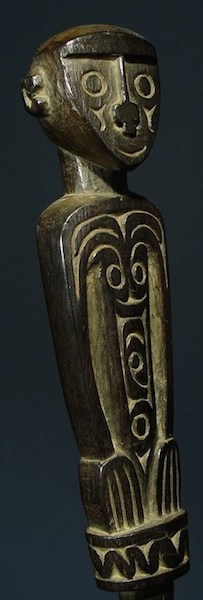

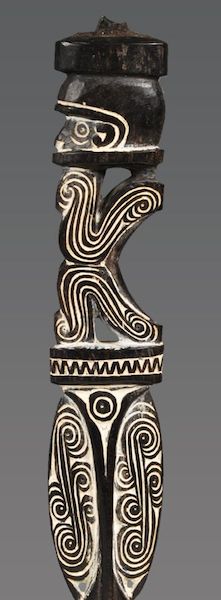
Malangan Sculptures
Malangan Figures come in a huge variety of styles but are all carved from a fairly soft wood. Typically they intensely painted in designs of Red white and black. They sometimes also have a small area of blue or yellow. The eyes made of a distinctive shell. Malangan come from the northern Regions of New Ireland
They are the only figures from new guinea that are sometimes made from more than one piece of wood. traditionally this form of tribal art was burnt after use.
Malangan culture also produced fantastic varieties of masks.



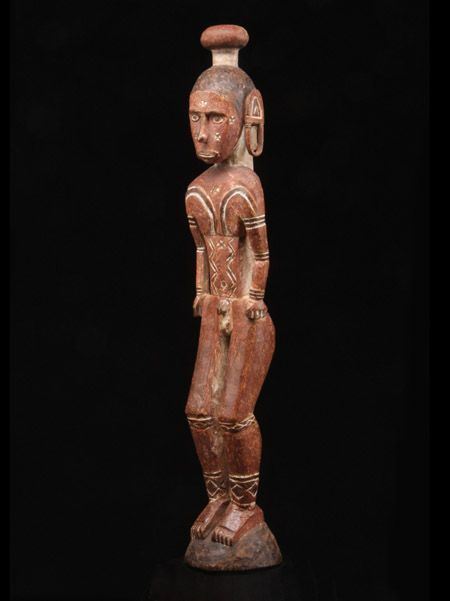
Admiralty island Figure
Admiralty Island figures come from Manus Island and they are usually predominantly dark red in color. They do come free standing but can also be on the end of poles and native ladders.
They are rare and highly collectible
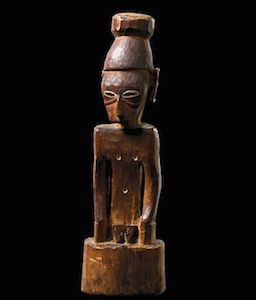
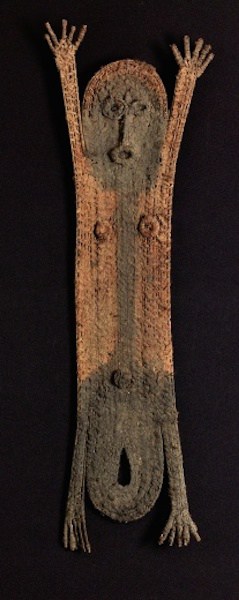
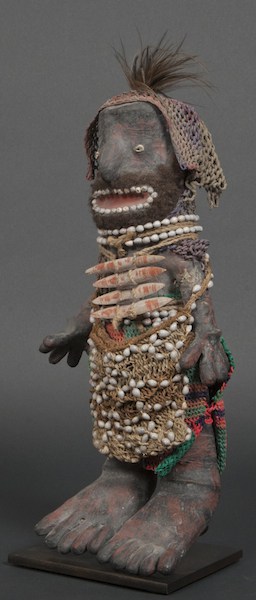
New Guinea Figure Highlands
Highland figures come from around Mendi and Nipa and are made from woven materials. Some were fairly flat and others made in the round.
Few old examples exist but many are later tourist versions. There was not a lot of sculpture in the highlands with most art being restricted to Shields and adornments.
Tolai Figures
Figures made by the Tolai are either made from wood or chalkstone.
They are rare and early examples were predominantly white with some red or Ricketts blue.
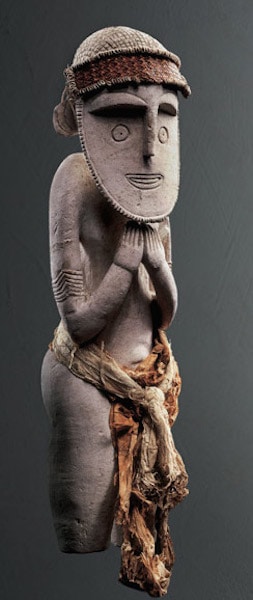
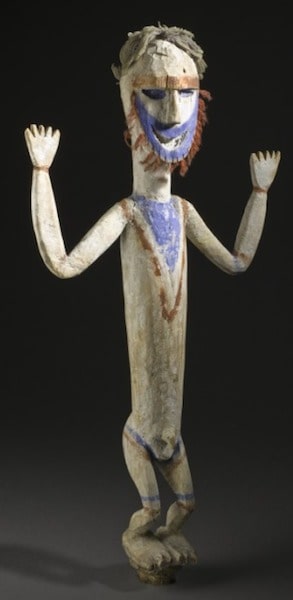
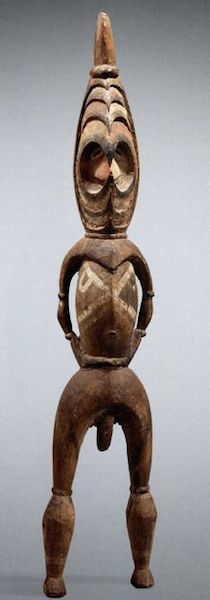
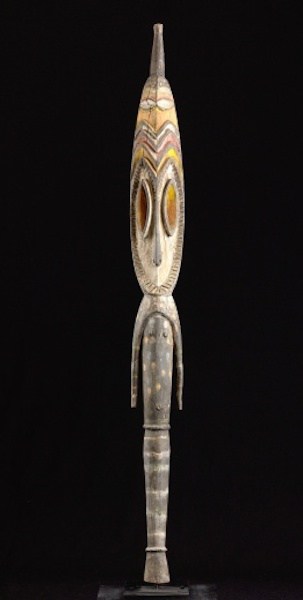
Middle Ramu River Figures
Two types of figure come from the Middle Ramu River,
The first comes from Rommekun and has distinctive hooks on the figures face.
The second from Kominimu have a unique eye shape. The eyes are almost always a semi diamond shape taller than they are wide.
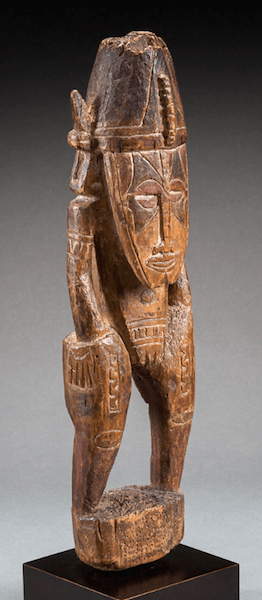
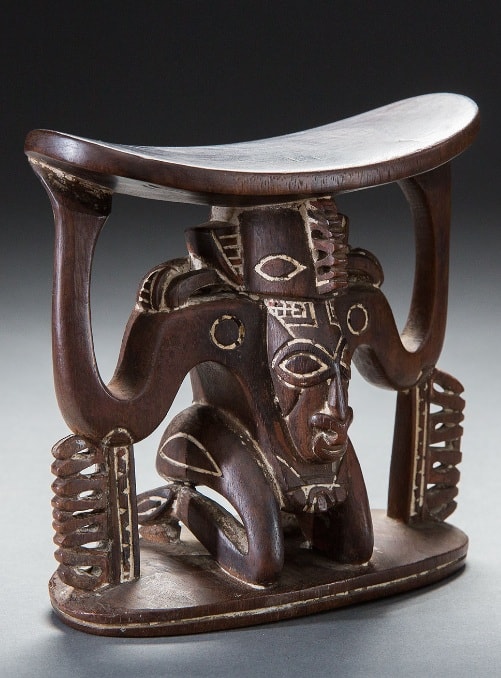
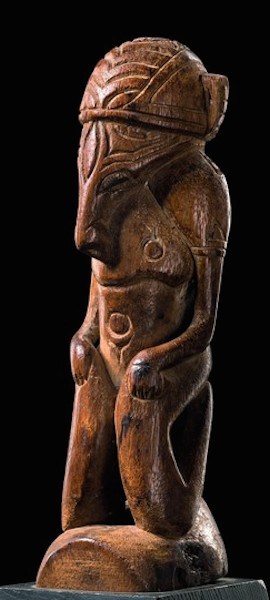
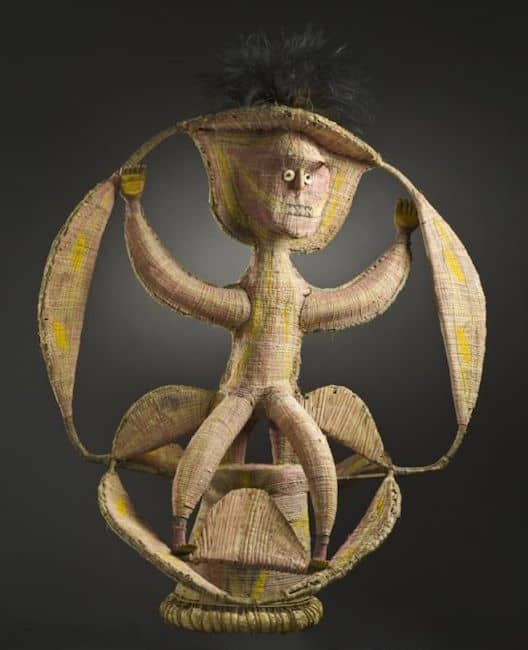
Sulka Figures
Sulka Figures are extremely rare. They are normally part of large woven masks or attached to large masks.
They have a distinctive pink or faded pink pigment. Wooden figures are made of a very light soft wood.
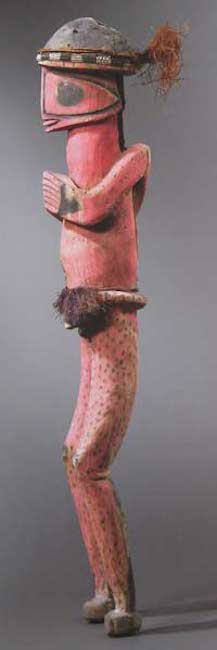

Bougainville Figures
Figures from Buka and Bougainville are Solomons Islands Art. Even though these islands are politically a part of Papua New Guinea, artistically they are from the Solomon Islands

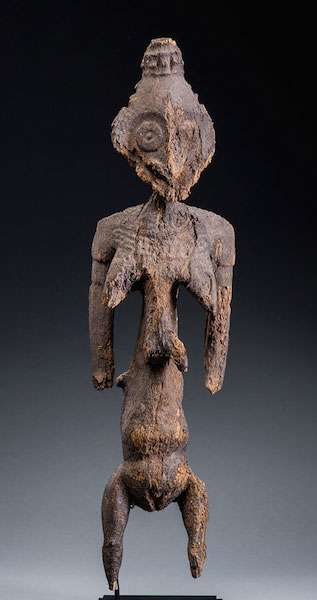
New Guinea Figure Sepik River
The Sepik River is one of the greatest art producing areas in the world. There is such a variety of Sepik Figures and styles that it needs its own article.
New guinea Figures
This is just some examples, so I hope you can appreciate the vast variety of Papua New Guinea Figure. New Guinea is probably the most prolific figure-producing region of the World after Africa. As Oceanic Art, they are extremely expressive and come in a vast variety of sizes forms and functions. It is a great pity that the majority of people who visit New guinea only get to see the modern tribal art produced for sale to tourists. They often miss the fantastic variety of other figures this diverse country has to offer.
If you enjoyed this article you may also enjoy my article on Aboriginal sculpture.
and Polynesian art
All images in this article are for educational purposes only.
This site may contain copyrighted material the use of which was not specified by the copyright owner.
